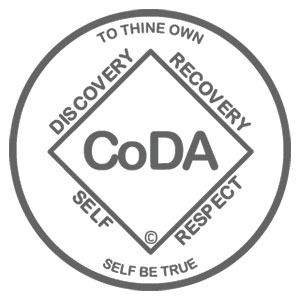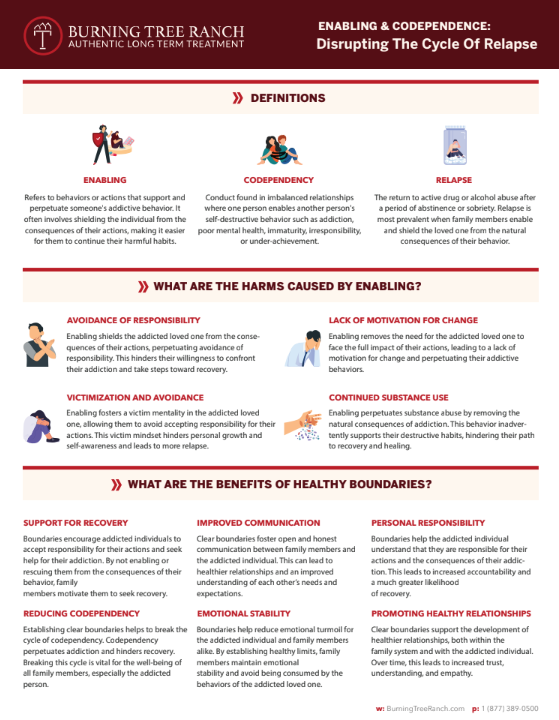As the Chief Operating Officer of a long-term dual diagnosis treatment center, I have witnessed firsthand the complex journey of individuals battling co-occurring disorders. One of the most challenging scenarios we encounter is the “chronic relapser.” These are individuals who, despite repeated attempts at recovery, find themselves caught in a cycle of relapse. Understanding the characteristics and warning signs of chronic relapsers is crucial for developing more effective strategies to support their path to sustained recovery.

Characteristics of Chronic Relapsers
Co-occurring Mental Health Disorders
Many chronic relapsers struggle with dual diagnoses, where mental health disorders such as personality disorders, trauma, and bipolar disorder coexist with substance abuse. This complexity often complicates their recovery process, making it harder for them to maintain sobriety.
Lack of Coping Mechanisms
Chronic relapsers typically have not fully developed or integrated effective coping mechanisms into their lives. They might rely on substances as a way to manage stress, emotional pain, or mental health symptoms rather than employing healthier strategies.
Resistance to Change
Despite experiencing the negative consequences of their substance use, chronic relapsers often show a high level of resistance to changing their behavior. This resistance can stem from fear, denial, or a deep-seated belief that they can control their use without external help.
History of Trauma
A significant number of chronic relapsers have a history of trauma. The unresolved emotional pain and distress from these experiences can drive their substance use as a form of self-medication.
Social and Environmental Factors
Chronic relapsers often find themselves in environments or social circles that do not support their recovery efforts. They may surround themselves with circumstances or individuals who use substances, making it challenging to stay sober.

Warning Signs of Relapse
Isolation
Withdrawing from support networks, such as family, friends, or recovery groups, is a common warning sign. Isolation can be a precursor to relapse, as it often indicates an internal struggle or a return to old coping mechanisms.Increased Stress
Stress is a significant catalyst for relapse. Chronic relapsers may exhibit signs of being overwhelmed or unable to handle daily stressors without resorting to substance use.Romanticizing Past Use
Fondly reminiscing about substance use or minimizing the consequences faced in the past can indicate a shift in mindset towards relapse.Skipping Treatment or Meetings
When an individual starts missing therapy sessions, support group meetings, or other treatment activities, it’s often a sign that they are moving away from their recovery path.Behavioral Changes
Changes in behavior, mood swings, or reverting to behaviors associated with active substance use periods can all be warning signs that a relapse may be imminent. In my role, it’s imperative to address these challenges head-on, providing direct and accountable care that not only addresses substance abuse but also the underlying mental health disorders. This involves maintaining a structured clinical environment that encourages honesty, fosters the development of healthy coping mechanisms, and facilitates reintegration into a supportive community.The Family’s Role in Growing Towards Change: Supporting Individuals while Avoiding These 6 Common Mistakes
Navigating the complex journey of a loved one’s repeated relapses, dishonesty, and various unacceptable behaviors presents a formidable challenge for family members. In my role, I’ve observed several common mistakes families make in these heart-wrenching situations. Understanding these missteps is crucial for families to support their loved ones more effectively.
Mistake #1: Enabling Behavior
One of the most common mistakes is enabling addictive behavior, often without realizing it. Families may cover up for the individual’s actions, provide financial support that indirectly funds substance use, or take on responsibilities that the person should manage themselves. While the intention is to protect the loved one, enabling only prolongs the cycle of addiction.
Mistake #2: Neglecting Boundaries
Failing to set and enforce clear boundaries is another frequent misstep. Boundaries are essential for the health and well-being of both the individual struggling with addiction and their family members. Without clear boundaries, there is a risk of blurring the lines between support and enabling, leading to resentment and burnout among family members.
Mistake #3: Lack of a Unified Front
Often, family members need to be on the same page regarding how to approach the situation. Disagreements on the best course of action can lead to inconsistent responses to the individual’s behavior, undermining efforts to promote recovery. A unified approach, grounded in mutual respect and understanding, is essential for adequate support.
Mistake #4: Succumbing to Guilt or Manipulation
It’s not uncommon for individuals in the throes of addiction to use guilt or manipulation to maintain their substance use. Family members may give in to these tactics out of love, fear, or a desire to avoid conflict. Recognizing and resisting manipulation is critical to prevent further enabling and encouraging individuals to take responsibility for their recovery.
Mistake #5: Overlooking Self-Care
While focusing on their loved one’s addiction, family members often neglect their well-being. This oversight can lead to emotional, physical, and mental health issues. Self-care is not selfish; it’s necessary to maintain the strength and resilience needed to provide support.
Mistake #6: Failing to Seek Professional Help
Due to denial, stigma, or a belief that they can manage the situation alone, families often wait too long to seek professional help. Addiction is a complex disease that typically requires expert intervention. Early engagement with treatment professionals can provide the guidance and support needed to navigate the recovery process effectively.
In my experience, addressing these mistakes involves a combination of education, support, and professional guidance. It also requires willingness.
Private Resources: A Place For Families To Turn
Below, I will provide a few resources for family members who may be prepared to embrace professional direction. These are consulting groups I have personally worked with. Any one of them would be happy to discuss your situation.

Clere Consulting
"Clere Consulting promises to provide the the expertise and confidentiality you require. We guide individuals, families, and advisors toward long-term independence from addiction and co-occurring disorders."

Family-Centered Services
"At Family-Centered Services, we provide comprehensive, compassionate care to individuals and families grappling with addiction and mental health struggles, offering therapeutic interventions, education, and ongoing support."

Feinberg Consulting
We are an intervention, case management, and coaching company that provides custom healthcare solutions to individuals and families faced with a mental health or addiction crisis, challenging illness, behavioral health concern, or complex medical crisis.
Support Networks: Essential Help For Families
These organizations offer valuable support, education, and community for those grappling with the complexities of addiction and recovery within the family dynamic.

Al-Anon Family Groups
A support group for friends and families of problem drinkers, offering insight into enabling and codependency. Their meetings are widespread and can be found through a quick internet search for "Al-Anon meetings."

Co-Dependents Anonymous (CoDA)
A fellowship of individuals whose common purpose is developing healthy relationships. The CoDA website provides information on meetings and resources for those struggling with codependency.

The National Council on Alcoholism and Drug Dependence (NCADD)
Offers support for families dealing with relapse and substance abuse issues, providing education and resources to navigate these challenges.
Until next time, I want to thank you for visiting with us.
Kindly,
Brook






